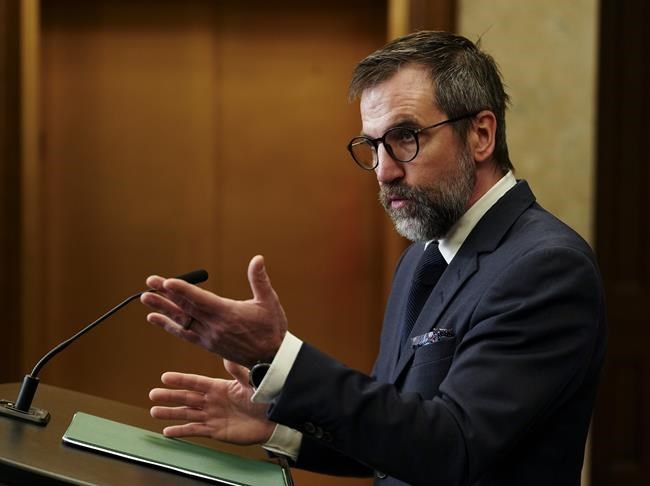OTTAWA — Environmental groups say the Liberal government is giving up its authority to regulate greenhouse gas emissions through proposed amendments to the federal Impact Assessment Act.
"We are concerned that the government is not fully living up to its responsibility to protect Canadians and the environment from the climate impacts of major projects," the groups wrote Wednesday in a letter to cabinet.
The changes, which are included in the government's legislation to implement the 2024 budget, are a response to a Supreme Court ruling in October that said the act ventured too far into provincial jurisdiction.
The decision is one of two big court losses for the Liberals on the environment in the last year, the other being a Federal Court decision in November that found Ottawa overstepped by declaring all plastic to be toxic, rather than individual plastic types. The ruling undermines the authority Ottawa has to ban single-use plastics, although existing bans remain in place pending an appeal.
The proposed change to the law would require an assessment for projects with "a non-negligible adverse change" to the environment. The government, however, has gone further than the Supreme Court required, environmental groups say.
The amendments would remove impact assessments for projects that would cause air pollution that crosses provincial boundaries. Instead, such assessments would only be necessary for projects impacting federal land, areas outside Canada or interprovincial waters.
"The federal government has a strong case for jurisdiction over serious cross-border air pollution," Ecojustice lawyer Josh Ginsberg said in an email.
"They should be making that case, not running away from it."
The government has been under withering and sustained criticism from Conservative Leader Pierre Poilievre and multiple premiers on environmental policy, in particular the federal price on pollution.
And with Poilievre's Conservatives enjoying a healthy lead in the polls, the political landscape is dramatically different when the act became law in 2019.
Neither the NDP nor the federal Green Party support the proposed amendments.
"My NDP colleagues and I are deeply concerned that greenhouse gas emissions will no longer be considered in impact assessments," MP Laurel Collins wrote in a letter to Environment Minister Steven Guilbeault.
Green Party Leader Elizabeth May called it a "quick and dirty" fix to the law, one her party cannot support.
Guilbeault, himself a former environmental activist, said the changes were made to ensure full compliance with the high court's decision.
"I respectfully disagree with my ex-colleagues of the environmental movement," he said.
Stewart Elgie, director of the University of Ottawa’s Institute of the Environment, said the government is taking a "big step backwards" on environmental law, ceding ground to the provinces on cross-border pollution that Ottawa has been regulating for decades.
Even the environmental assessment law passed by Stephen Harper's Conservative government, which reduced its scope and expanded ministerial discretion, still covered cross-border pollution, he said.
"So they are doing less than the Harper government did on environmental assessment," he said, adding that he meant only as it pertains to cross-border emissions.
But other laws have come into effect since the law was originally passed in 2019, Guilbeault said.
"We didn't have methane regulations in Canada, a zero-emissions vehicle standard, a clean fuel standard in Canada," he said.
"All of these things have been developed since the Impact Assessment Act was adopted."
This report by The Canadian Press was first published May 2, 2024.
— With files from Mia Rabson.
Simon Hopkins, The Canadian Press



